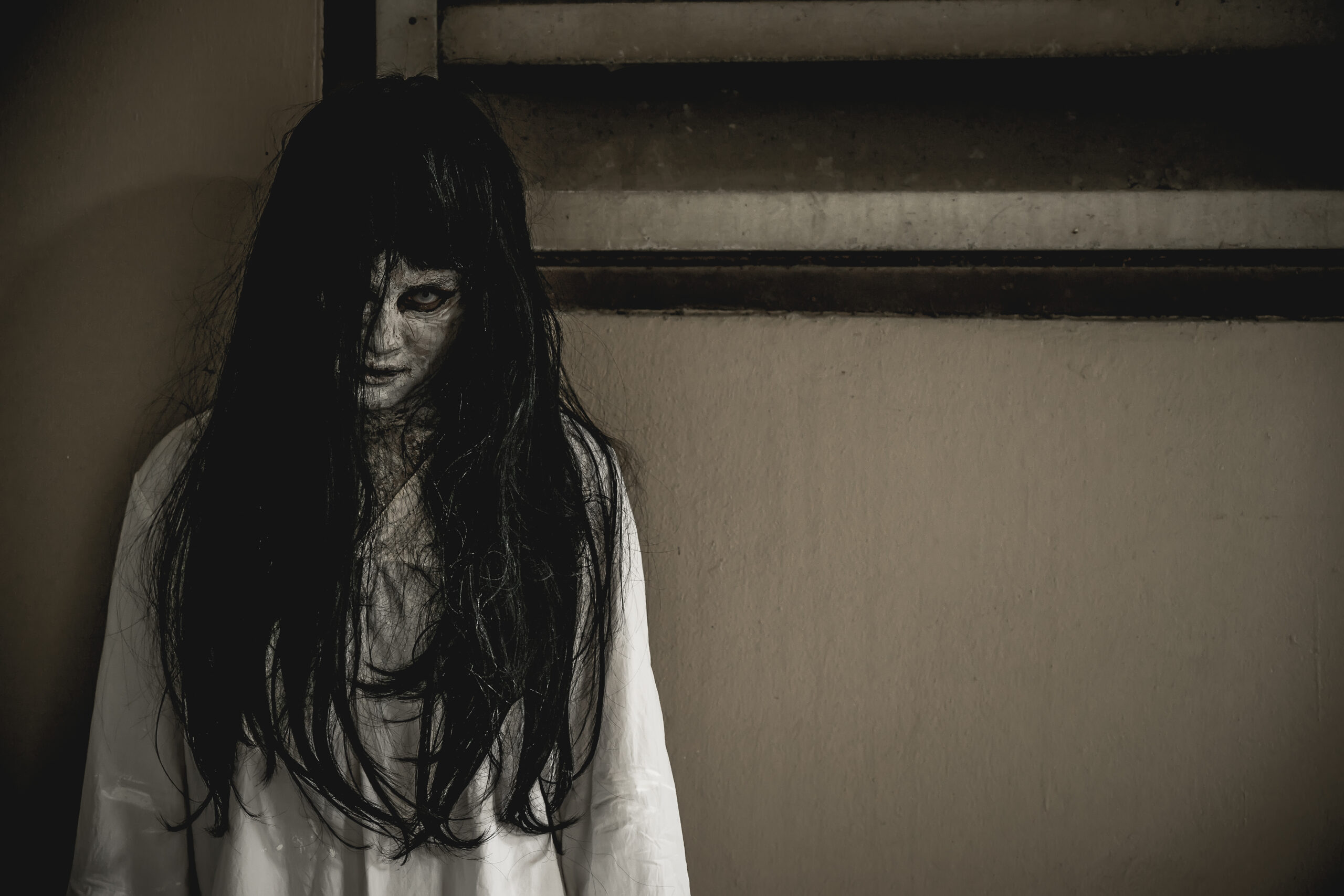
(Shutterstock)
My extended family has other obligations on Halloween, so we agreed tonight is the night some of us will watch a scary movie on the side of a neighbor’s building.
I am not a fan of horror movies, for some of the same reasons I do not consider Stephen King a great literary figure—or maybe because I flatter myself that I have seen too much of reality for those fantasies, as Georges Méliès (Ben Kingsley) says in Hugo.
In truth maybe those movies work on me more viscerally than I like to think, and I am a coward. I remember being young and alone in a dark room, with The Exorcist suddenly on TV after an innocent turn of a dial. In an instant the girl’s head spun around, her mad face and deep voice full of the devil, and I felt like I might pass out. I knew our house was haunted anyway. My mother said she had seen my doppelgänger through our front window, and that my sister had woken twice to find a dark figure at her bedside. Perhaps, having left the church, my mother was Baptist-haunted. Maybe she was afraid of things incorporeal, like my absent father or looming poverty. She never would have let me see a movie about possession, and I do not watch them now.
I also still have never seen a whole slasher movie, because I hate their gore and the feeling of stupid fate about them. But I never minded zombie movies, which I saw with army friends, all of us drunk and laughing, because the monsters were dull-witted and slow. We were in shape and had trained in military weapons, and the monsters in those movies were as nonthreatening as targets shaped like Soviet soldiers that popped up on ranges. “More brains,” we groaned for weeks.
Asked what should be shown tonight, I said my idea of a good scary movie was Tremors, which at least has human relationships, well-written dialogue, alternations of comedy, and the underlying view we can outwit whatever that thing is, under normal life, waiting to devour us.
I also took my teen son to see Joker yesterday. He and I discussed the movie and its reviews many times before I agreed to go. It is not a horror movie and does not have the same kind of violence as a slasher movie, though that is getting closer to the problem. The thing that bothered me, without having seen it, was that people were saying it glorified turning against civilization in some incel fashion. Having seen it, I agree with Michael Moore’s impromptu review that it is not that. There are things to be afraid of, and things that are just boogeymen, and it is important to know the difference, so we can act on them.
My son and I sat alone together in an empty theater through most of the preshow ads. Just before the trailers, another man, in a ball cap and an oddly heavy coat, came in and sat somewhere behind us. The lights dimmed, and the theater warned us to turn off our phones, to report any suspicious behavior, and to run out the exit and far away from the building if anything should happen. I sat feeling my blood running through my son, his life ahead of him, and how I had risked everything by taking him to see a stupid movie. Then I felt angry, because it was just a movie, and I had no idea what stupid ideas the man behind us might hold in his mind. Had he been carrying a bag when he passed? I did not want to turn to look. As the movie began, I asked my son in a whisper if he knew what the language of the warnings meant. He, who has seen SWAT teams practicing for death at his school, said yes, and that made me feel something worse than anger and fear. I told him if anything were ever to happen in any situation like we were in—he looked at me strangely—that he was to drop to the floor, crawl-run down the path and out the door I pointed to, and get away. I was sorry my concern seemed to scare him. I thought about us leaving.
